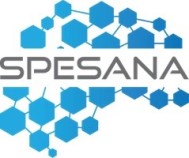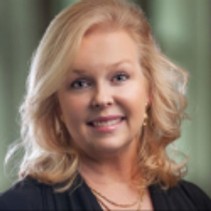
© CEOCFO Magazine -
CEOCFO Magazine, PO Box 340
Palm Harbor, FL 34682-
Phone: 727-
Email: info@ceocfocontact.com


Search





Business Services | Solutions
Medical | Biotech
Cannabis | Hemp
Banking | FinTech | Capital
Government Services
Public Companies
Industrial | Resources
Clean Tech
Global | Canadian
Lynn Fosse, Senior Editor
Steve Alexander, Associate Editor
Bud Wayne, Marketing
& Production Manager
Christy Rivers -




 Print -
Print -
Physicians Crave Simplicity
 Carla Balch
Carla Balch
CEO
Spesana
Contact:
Jeanette Cofer
Interview conducted by:
Lynn Fosse, Senior Editor
CEOCFO Magazine
Published – December 21, 2020
CEOCFO: Ms. Balch, what is Spesana?
Ms. Balch: Spesana is Latin for hope and health. It is a technology platform wrapped in services powered by data.
CEOCFO: Why those two areas?
Ms. Balch: Pulmonology is where we find the earliest lung cancer and research shows that the earlier we can find patients, get them diagnosed and treated, the better their outcomes are. Spesana is appropriate for all therapeutic areas, but there is just this sense of urgency in oncology and the opportunity to move quickly into pulmonology.
CEOCFO: How does it work? How do you interact?
Ms. Balch: We are really focused on changing the experience for the clinician. The change that has happened since the mid-
CEOCFO: What went into developing this?
Ms. Balch: As you know, I was in leadership at Altos Solutions. We were the first oncology specific electronic medical record. Therefore, we unknowingly, were part of the shift to creating the workflow that these physicians have now, so I have this sense of responsibility that I need to repair that unintended consequence and make it better for these physicians. What has gone into the Spesana Platform it is twenty-
CEOCFO: How would a physician interact?
Ms. Balch: For a physician to interact, we are a HIPAA compliant, web-
Also, physicians can view patients similar to the one that is being seen right now. The Spesana Well is where all deidentified data flow. The Well serves as a comparator data set from across ALL settings of healthcare. A physician could say, “Show me all patients like mine and what is working and what is not.” That, in my opinion, changes the discussion from a physician choosing the normal course of business and really starting to get back to real-
Excited to share we have Collaboration Boards. This is a new style of a more traditional tumor board, but the ability to really do a complex, multi-
CEOCFO: You launched the molecular diagnostic physician support platform on October 6th. When did you know that you nailed it and it was good to go?
Ms. Balch: This has been such an organic process. I knew that this is what the industry needed, just because I have been solving problems with technology for many years. This was the opportunity for me to take a step back and not necessarily solve one or two problems, but to really take a very, very broad 360-
CEOCFO: Do oncologists and pulmonologists know they need this?
Ms. Balch: They do. It has been so validating when we hear physicians say, “I will use this for every patient, I do not know why anyone would not use this.” One of our physicians said that they were rapturous about the experience of how to get smarter faster. Those are the kinds of words that, not only endorse what we are doing, but it really powers us. It matters to me what a physician’s day looks like, because the more patients they can see, the better off we are going to be.
CEOCFO: Would you tell us about the collaboration with mProbe/OncoOmicsDX?
Ms. Balch: Yes. One of the premises is that oncology patients need molecular diagnostic testing. Ninety percent of clinicians agree, but less than fifty percent of them order a test. That is because there are so many to choose from. The selections of tests are confusing and expensive. A molecular export can include forty pages of dense text. Physicians say, “It is really not clear, what should I do?"
They look at an MDx test like another lab report and it is hard for them to find in their EMR. Therefore, everything about the selection, the ordering process, the tracking; the usefulness of the results can be vastly improved. That is where we will see leaps and bounds in improvement, not only in the workflow, but also in the outcomes for patients, because they will now have molecular diagnostics along with additional context for patients. This extra context and refinement can help physicians hypothesize best treatment or trial. For all the years I've been at this, we still have an intensely critical need around clinical trial site and patient identification. Now it is more important than ever to understand a patient's molecular information to appropriately select treatment.
CEOCFO: How are you able to pull together information from payer systems and the general medical records? Whether it is the doctor, the nurse or even the receptionist, many people now look at their screen and this blank look comes over their eyes.
Ms. Balch: That is exactly right! I think that over a decade of understanding complex data; when you have built the first oncology EMR, you have built the first data table for an oncology EMR. Therefore, being at the beginning and seeing the evolution of data; the good, the bad, the ugly; it really is just a continuation of what we have been doing. It is not a new recipe we have to figure out. Amalgamated data and workflows are old hat for us. We know what data looks like, what it should look like and how we fill that gaps in knowledge.
CEOCFO: How do you keep up to date with new information that comes out daily? How do you know which info to add? Is it creating the proper algorithm to get it done?
Ms. Balch: I think that this question is really key, because there is so much information and there is really not a gold standard or a predictable measuring stick to say, “Is this relevant, is it good?” There may be a lot of data, and I think this is part of the clinician's challenge. These busy physicians need help finding, and consuming useful data at the right time. This includes information that is available, whether it is clinical, molecular, socio-
There is SO much information, but that is one of the joys though, of our business. That is because we are information carnivores; the whole staff is. Therefore, this really is like being in a candy store for us. We just have to decide what these physicians and pharma, molecular labs and payer parties need and then create that product in a responsible way and make it easy to interact with. This is what the team loves to build.
CEOCFO: What are you finding as you are going to market?
Ms. Balch: I think it was interesting to start a company during COVID. That was an interesting choice, but it has also meant that physicians and hospital systems are more available to look at technologies platforms and services that could help them get through a crisis. We are finding very open minds and willingness, even excitement around what we have built. Therefore, I originally thought it might be crazy to start a company during COVID; it has turned out to be a real blessing!
CEOCFO: Are you seeking funding, investment or partnerships as you move forward?
Ms. Balch: Yes. One of the things about being a platform is that we do not have to build everything ourselves. We are happy to lock arms with like-
CEOCFO: What input do you need from the physician? What does a physician need to do to utilize the system to the best effect for him or her?
Ms. Balch: To your earlier question, the more information the better. What we still have today, which is shocking since it is almost 2021 is data still living in silos, at least for the clinicians. The physician experience is very much, “Here is all of the oncology data, but what about the cardiology data, what about the mental health data, what about the socio economics, what about the patient’s preferences?”
We are really focused in looking at that patient as a human being in total, rather than in this particular healthcare silo, which to us, is an artificial boundary that has been put around a patient. I do not know if that makes sense, but we are really looking for as much information as possible so that we can tell the physician, “Here is everything about the human you're treating.”
CEOCFO: Then would you be going into anything they have about this person and putting it all together?
Ms. Balch: That is right. EMR, lab, molecular diagnostics, payer information, socio economic if it is available, family history; everything is desired. What we find is that even physicians do not know where all of the data is. However, we are tireless, we will help them figure it out and bring it to them and make it meaningful.
CEOCFO: Is it typically physicians that would be using this or might a nurse or someone else prepare some of the research?
Ms. Balch: Yes, nurse navigators and nurses make the world go around! There is no doubt about that. It is clinicians who struggle, but the people who make their struggle less taxing are the nurses and the navigators. Therefore, they absolutely are users of the system and we hope to create some specific workflows to make their lives easier as well.
CEOCFO: What has changed in your approach over time? What is different than what you originally thought would be needed or that you would be able to do?
Ms. Balch: In the mid-
CEOCFO: What is your business model?
Ms. Balch: We sell platform as a service and professional services, not only to healthcare providers. Customers include hospital systems, community practices and academic medical centers. Much like above, we know other Healthcare stakeholders also need a elegant new solution to move forward. We also sell to pharmaceutical manufacturers. For example, new drug development, clinical trials, commercial teams, medical science liaisons. We sell to molecular diagnostic companies. Then we also can sell platform services and services to payers.
CEOCFO: What does the next year look like for Spesana?
Ms. Balch: Seatbelts! I think it is going to be, “Please remain seated. We are revving and shifting to the next gear to go faster!” We are so excited that we now have a waiting list for beta sites. Our first two waves are full and they are very, very engaged. We are getting amazing ideas from our beta physicians. Spesana will be rapid scaling, not only in the clients that we have on the list, but also our internal teams. Therefore, we will be hiring heavily in 2021.
CEOCFO: It is a very exciting time for you!
Ms. Balch: Yes it is! Thank you for letting us tell our story!
Spesana, Carla Balch, Oncology Electronic Medical Records, Multidisciplinary Collaboration Oncology, Physicians Crave Simplicity, CEO Interviews 2020, Medical Companies, Molecular Diagnostics, Electronic Medical Records, EMR, Optimize Cancer Collaboration and Therapy, clinical decision support system, molecular diagnostics-
“We are focused on simplifying the physician experience to be something very elegant, where all information that is needed is in one page and then all the requisite workflows, reports, data, molecular diagnostic orders, all fall into place with a one page view of a patient. It is almost like the anti-